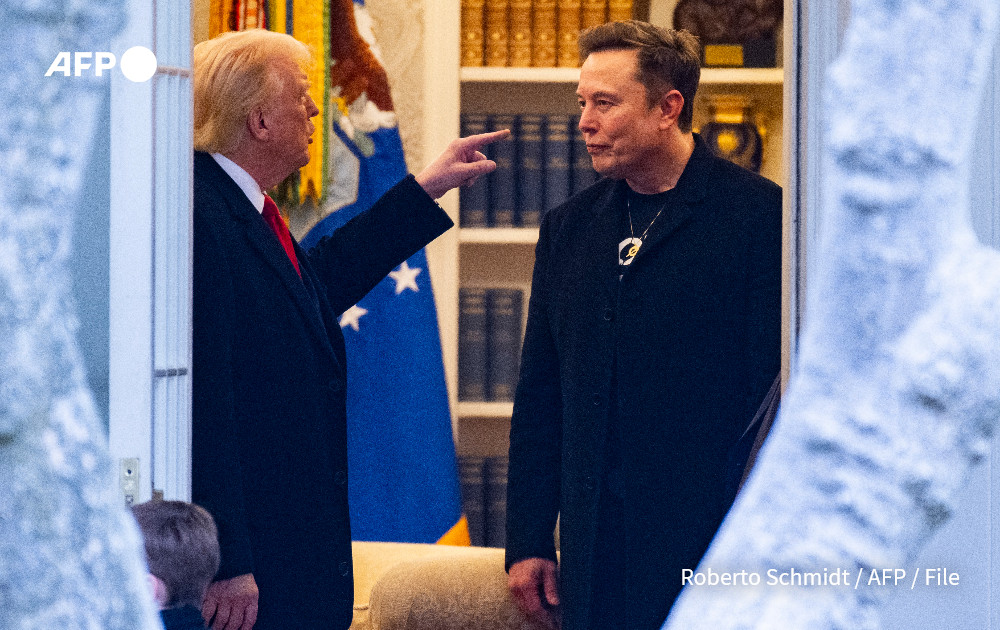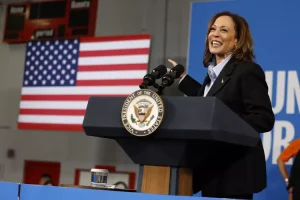Trump vs. Musk: Billion-Dollar Battle Brews as President Threatens to Cut Federal Contracts Amid Feud
In a dramatic escalation of political theater intertwined with high-stakes economics, President Donald Trump has publicly threatened to cut off billions of dollars in federal funding to Elon Musk’s companies amid a growing feud. The rift, which began with disagreements over a sweeping tax bill, has now spiraled into an unprecedented clash between two of the most powerful and high-profile figures in America: the President of the United States and the billionaire tech entrepreneur who has become synonymous with space travel, electric vehicles, and frontier technologies.
The tension reached a boiling point when Trump took to Truth Social, his social media platform of choice, to announce his intent to axe federal support for Musk’s ventures. “The easiest way to save money in our Budget, Billions and Billions of Dollars, is to terminate Elon’s Governmental Subsidies and Contracts,” Trump wrote, sparking immediate speculation and concern across economic and political circles.
Musk’s SpaceX, one of the crown jewels in his business empire, holds lucrative contracts with the federal government, especially with the Department of Defense and NASA. These deals underpin a significant portion of America’s strategic and exploratory ambitions in space. Additionally, Starlink, SpaceX’s satellite-based internet constellation, has played a crucial role in global internet coverage initiatives, some of which serve military and emergency purposes.
YOU MAY READ
What Happened to the ‘Great Relationship’ President Trump Had With Elon Musk?
If Trump follows through on his threat, the ramifications could be immense. Cutting contracts would not only disrupt timelines for critical defense and space missions, but it could also send shockwaves through financial markets that are heavily vested in the success of Musk’s companies. Moreover, the United States’ standing in the global space race might face setbacks, particularly as rival nations ramp up their own capabilities.
The feud is rooted in Musk’s public criticism of a tax reform bill championed by Trump. The bill, which slashes taxes for corporations and high-net-worth individuals while reducing various social spending initiatives, was described by Musk as “short-sighted and damaging to American innovation.” While Musk has historically supported lower corporate taxes, he took issue with specific provisions in the bill that he argued disproportionately benefited traditional energy sectors at the expense of renewables and tech.
Trump, speaking during a bilateral meeting with German Chancellor Friedrich Merz, expressed shock and disappointment at Musk’s statements. “I’ve always liked Elon. And so I was very surprised. You saw the words he had for me, and he hasn’t said anything about me that’s bad. I’d rather have him criticize me than the bill. Because the bill is incredible,” Trump said, appearing to downplay personal animosity but underscoring his attachment to the legislation.
Musk, never one to shy away from a digital brawl, clapped back with characteristic flair. “Without me, Trump would have lost the election, Dems would control the House and the Republicans would be 51-49 in the Senate,” he posted online. “Such ingratitude,” he added, underscoring his view that his political support and influence were instrumental in Trump’s reelection.
YOU MAY READ
Elon Musk Condemns President Trump’s Signature Budget Bill, Calls It “Abomination”
The situation has sparked a firestorm of commentary across cable news networks, op-ed pages, and social media platforms. Political pundits are divided. Some view Trump’s threat as an act of political brinkmanship, designed to silence dissent and reinforce loyalty among wealthy allies. Others see it as a genuine attempt to cut federal spending—albeit one that risks undermining strategic national projects.
Legal analysts also weighed in, suggesting that unilaterally canceling federal contracts could open the administration to legal challenges. Contracts with the federal government, especially those that touch on national defense and aerospace, are typically binding and involve numerous legal safeguards. Arbitrarily terminating such agreements could trigger lawsuits, damage contractor confidence, and even provoke congressional intervention.
Moreover, critics argue that using federal contracts as a tool to settle political scores sets a dangerous precedent. If administrations begin targeting companies based on their executives’ personal political positions or public commentary, it could chill free speech and destabilize public-private partnerships that underpin much of America’s innovation ecosystem.
Musk, meanwhile, remains defiant. According to sources close to the entrepreneur, he has instructed his legal and policy teams to prepare for potential fallout, including federal audits and abrupt funding freezes. Insiders say Musk is also exploring private sector alternatives to government contracts, though such a transition would take time and could slow several of his initiatives.
Still, Musk’s influence remains formidable. As the head of Tesla, SpaceX, Neuralink, and The Boring Company, his enterprises collectively employ tens of thousands of workers and drive cutting-edge research and development. More importantly, they occupy a central role in America’s transition to renewable energy, high-speed transit, and digital infrastructure.
While some industry insiders argue that Musk may be exaggerating his political clout, there’s little doubt that his contributions to Trump’s campaign and his previous role in the administration gave him access and influence. Musk served for four months as head of the Department of Government Efficiency, a short-lived agency tasked with reducing federal waste. His tenure there was marked by aggressive cost-cutting proposals, some of which remain under evaluation.
The growing rift also reflects deeper ideological fissures in the Republican Party. While Trump’s base remains loyal to the former president’s populist-nationalist agenda, a growing faction of conservative technocrats sees value in aligning with innovators like Musk. These figures argue that America’s global leadership in science and technology depends on robust partnerships between the state and visionary entrepreneurs.
At the same time, Musk’s recent political shifts—supporting certain Democrats on social issues while remaining economically libertarian—have left him politically isolated. Trump’s team is reportedly frustrated by Musk’s unwillingness to toe a consistent ideological line, especially given the financial and political support he has received.
In the short term, all eyes are on whether Trump’s threat will translate into actual policy. The Office of Management and Budget has not yet issued any directives, and Pentagon and NASA spokespeople have declined to comment on the status of their contracts with SpaceX. However, the possibility of a funding freeze has already prompted internal reviews within these agencies.
For Musk, the battle is as much about principle as it is about profit. In a recent interview, he emphasized the importance of government neutrality in supporting innovation. “The government should not be in the business of punishing companies for speaking truth to power. That’s the road to mediocrity,” he said.
Meanwhile, the business community is watching nervously. Executives from companies ranging from tech to aerospace have expressed concern over the message being sent. If government contracts can be threatened based on political disagreements, then long-term planning becomes fraught with uncertainty.
This confrontation, while deeply personal in tone, is symbolic of a larger shift in American political economy. As private companies increasingly undertake roles traditionally reserved for the public sector—launching satellites, building infrastructure, providing digital connectivity—the lines between public service and private enterprise are blurring.
In this new landscape, personality-driven politics can have outsized impact. The Musk-Trump feud may well be a harbinger of future conflicts where political leaders and business moguls clash not just over policy, but over the very nature of power and influence in 21st-century America.
How the standoff resolves remains to be seen. For now, it offers a cautionary tale about the fragile alliances between political authority and entrepreneurial ambition. If either side pushes too far, the consequences could ripple far beyond the egos at the center of the storm.





